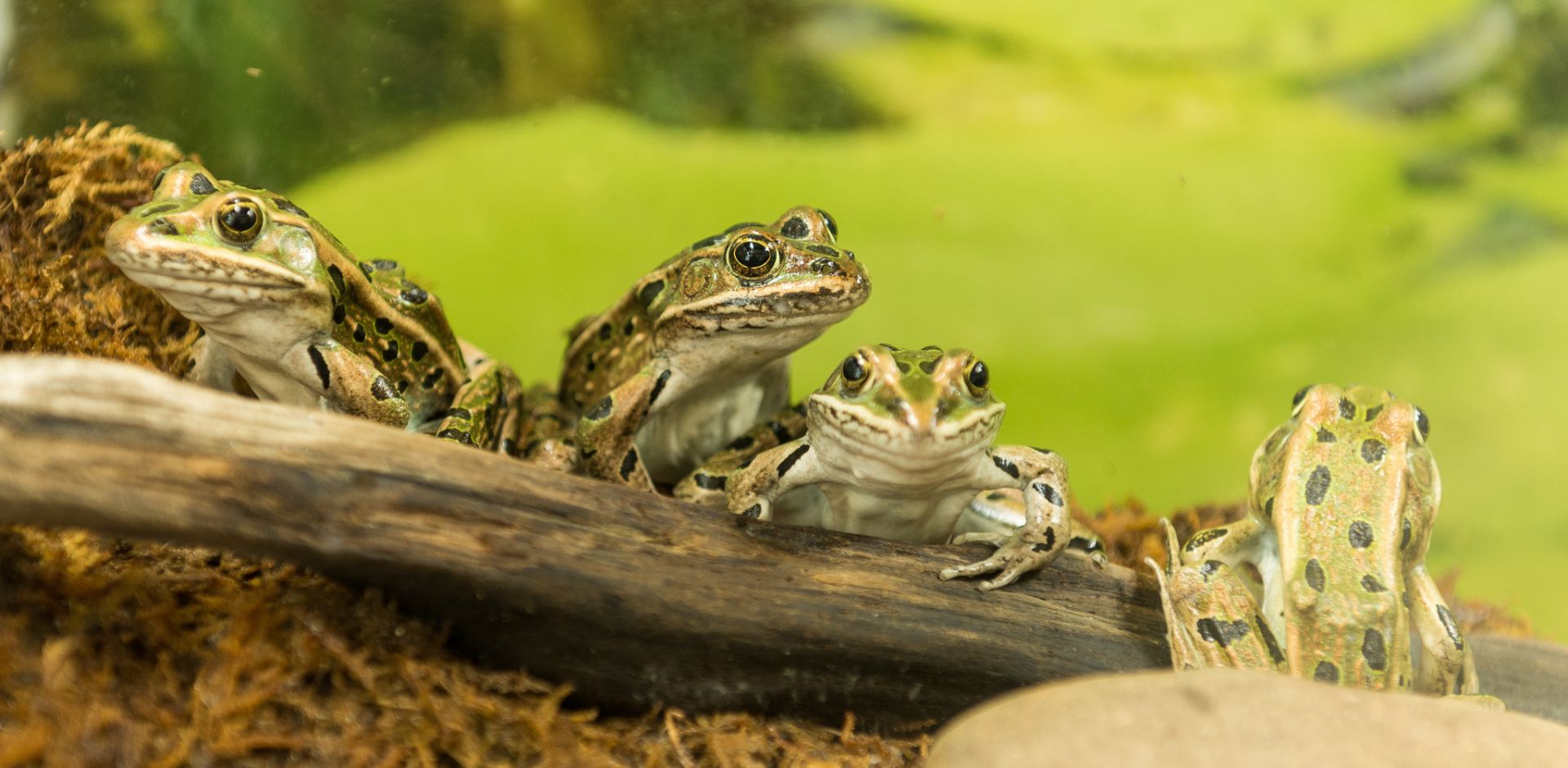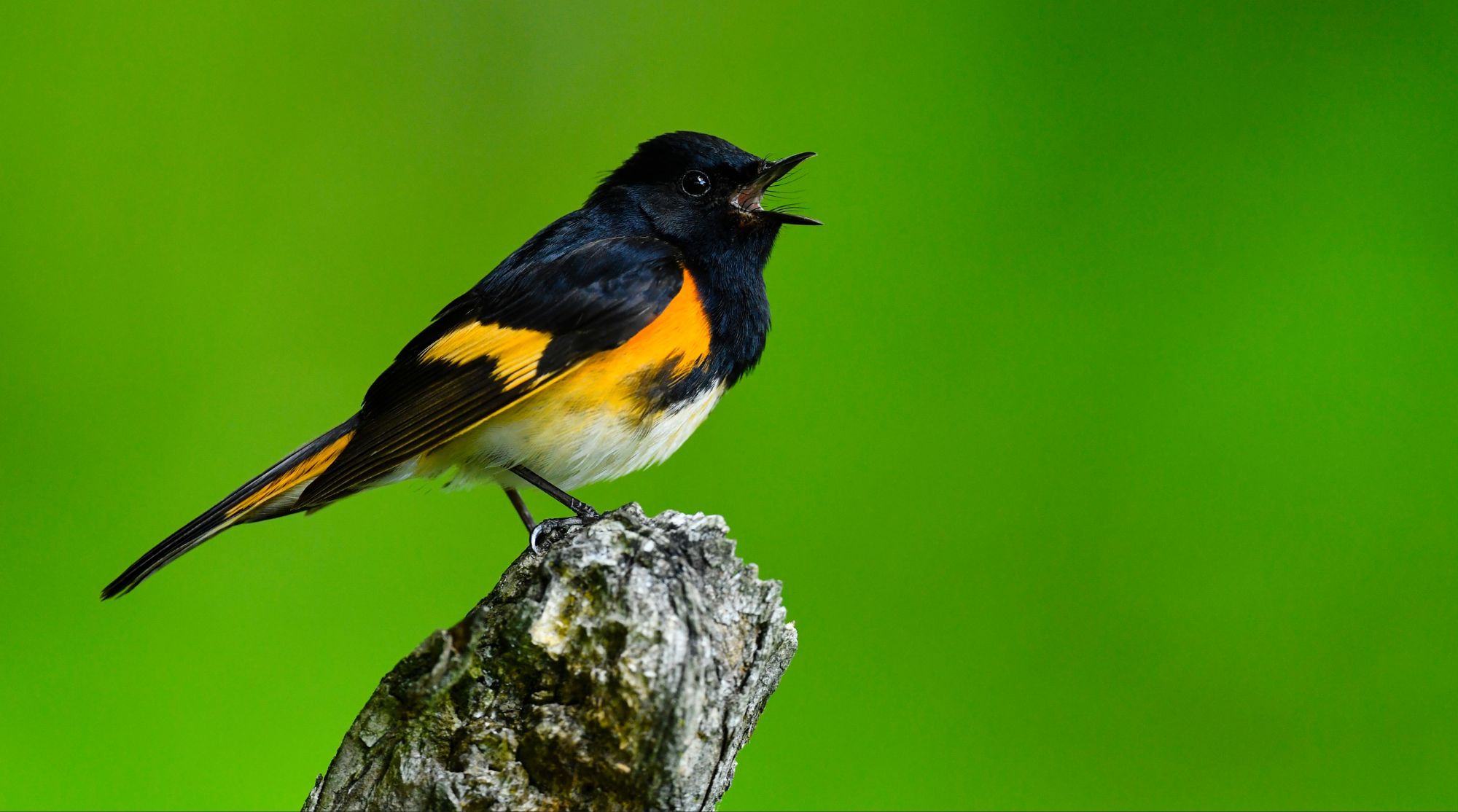

Oh how we like the little chirp of a bird in the morning. And how we hate the caw of the crows in the morning. Some birds sound melodious; others are very unpleasant. Either way, it is how birds communicate, but our perception is different.
Of all vertebrates, birds have the greatest capacity for producing sounds. Their repertoire is particularly rich and one of the most diverse of the animal kingdom.
How does it work?
Birds have a unique organ, the syrinx. This cartilaginous structure has the same function as the larynx in other vertebrates, although constituted differently. Moreover, the birds also have a larynx, located at the top of the trachea. It is used to open and close the glottis to keep food out of the respiratory system.
The syrinx is located at the junction of the trachea and the two main bronchi. More or less complex depending on the species, it is composed of two cavities formed of membranes. It is the vibrations of these membranes that produce sounds. Some species hardly sing, while others can produce two sounds at the same time. They have the ability to control the cavities of the syrinx independently, which also allows them to breathe while singing.
Why are they singing?
The repertoire of bird songs, sounds and calls is associated with specific situations. It can have a variety of uses:
- proclaim its territory
- seduce a partner
- announce characteristics (species, age, sex, skills)
- report their presence
- warn of potential danger
- call a rally
- signify membership in a group.
Scientists have long thought that only males sing. However, recent studies have shown that females of many species also sing. The song, softer, emitted less often, added to the cryptic colors of the females, is therefore easier to miss. Moreover, there has long been a bias caused by the fact that researchers and naturalists were, historically, mainly men.
The early bird gets the worm
The phenomenon of birds singing early in the morning is known as the dawn chorus. This choir is in fact a harmony of several species of birds that begin to sing each at specific times. This is a phenomenon observed in several places on the planet, and well known to researchers.
Although birds can sing at any time of the day, the most energetic and noisy songs are often heard in the early hours of the morning. These songs begin early, up to an hour before sunrise, and continue until the temperature warms. Singing at dawn is a good way to demonstrate your fitness or ability to reproduce. Singing with power, in the fresh morning air, without eating, requires a lot of energy and has enough to impress a partner or reconnect with an existing partner.
Early in the morning, there is also less ambient noise, insects for example, which allows the songs of the birds to be better heard. Finally, it is too dark to find food, insects are not out yet, and it is too dark for predators, so why not take the opportunity to sing.
Author : Stéphanie Bentz, biologist in charge of education
Sources :
Frank B Gill. Ornithology. 3rd edition. New York : W.H. Freeman and Company, 2007. Imprimé.
Cornell Lab of Ornithology. 2014. Bird Song. All About Bird Biology. Cornell Lab of Ornithology, Ithaca, New York. [En ligne] https://academy.allaboutbirds.org/birdsong/ (Page consultée le 3 juillet 2023)
All about birds. Who Sings First During The Dawn Chorus—And Why? [En ligne] https://www.allaboutbirds.org/news/who-sings-first-during-the-dawn-chorus-and-why/ (Page consultée le 4 juillet 2023)
Woodland Trust. Dawn chorus : why do birds sing in the morning? [En ligne] https://www.woodlandtrust.org.uk/blog/2019/04/dawn-chorus/ (Page consultée le 4 juillet 2023)
DiscoverWildlife. Dawn chorus guide: what it is, how to hear it, and when International Dawn Chorus Day is celebrated [En ligne] https://www.discoverwildlife.com/how-to/watch-wildlife/dawn-chorus-guide/ (Page consultée le 4 juillet 2023)
The Spruce. The Dawn Chorus – What Birds Sing and Why? [En ligne] https://www.thespruce.com/dawn-chorus-meaning-386220 (Page consultée le 4 juillet 2023)
The Spruce. 12 birds that sing at night [En ligne] https://www.thespruce.com/birds-that-sing-at-night-4159789 (Page consultée le 4 juillet 2023)
American Bird Conservancy. Singing in the Dark: 7 of the Most Captivating Nighttime Songsters in the U.S. [En ligne] https://abcbirds.org/blog20/nighttime-singers/ (Page consultée le 4 juillet 2023)
Guepe. Le précieux syrinx [En ligne] https://www.guepe.qc.ca/blogs/le-precieux-syrinx (Page consultée le 20 février 2024)